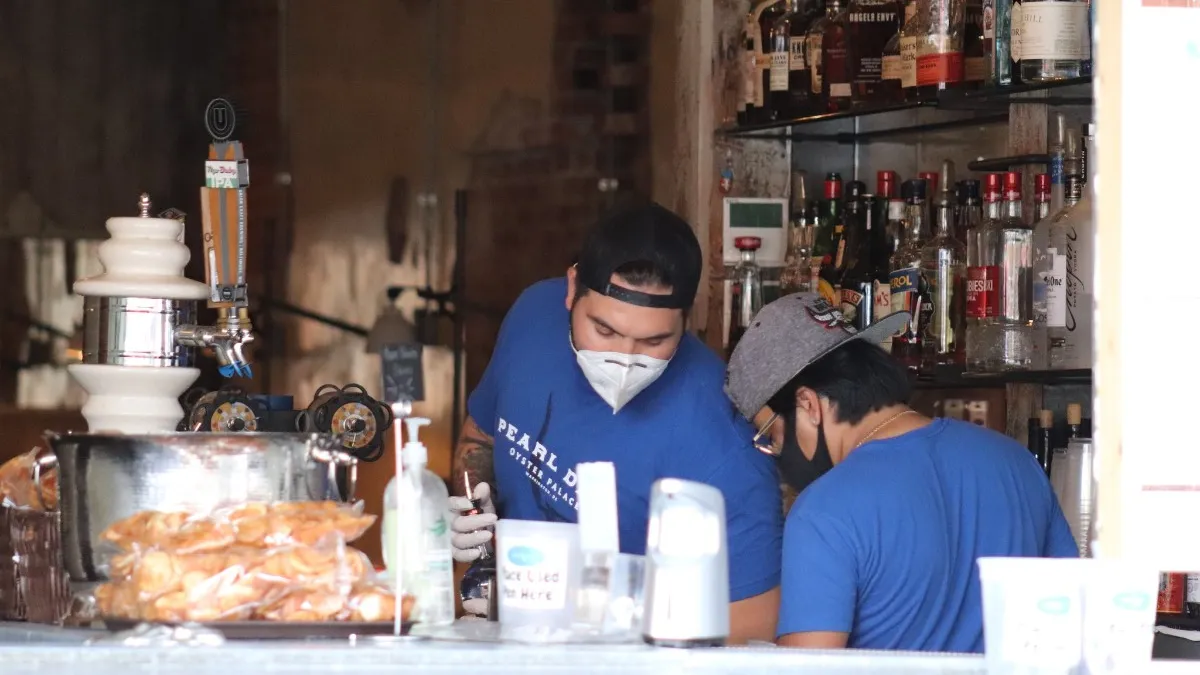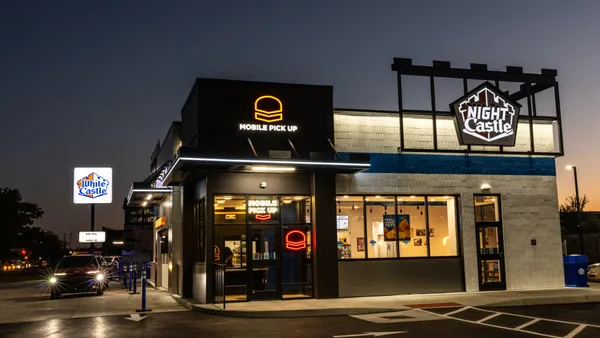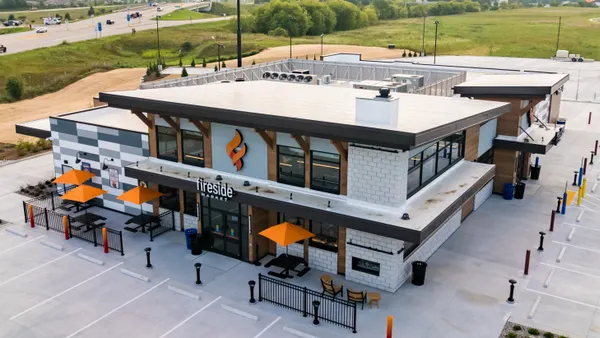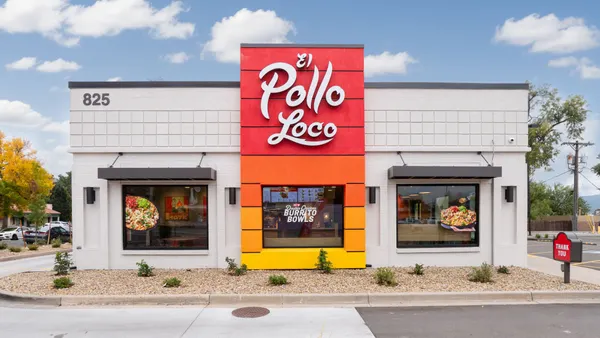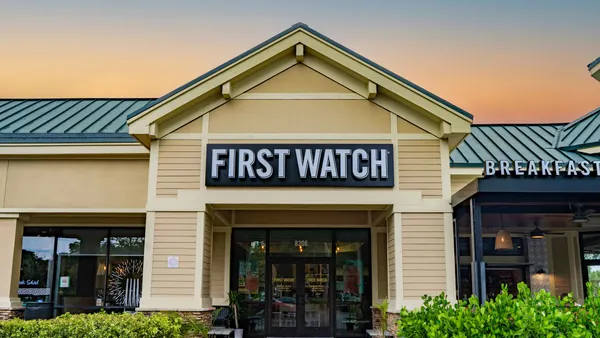Dive Brief:
- Despite gains in rehiring employees in May and June, the restaurant industry has lost 2.6 million jobs as of July, with employment at 9.7 million, according to data from the Bureau of Labor Statistics compiled by Black Box Intelligence and shared during a Wednesday Restaurants Rise webinar.
- QSRs added 1.3 hourly staff per unit while fast casual restaurants added 2.1 hourly employees per unit in June, compared to the average for January and February. Comparatively, casual dining lost 3.1 staff members per unit for front-of-house employees and 1.1 back-of-house employees in June, according to Black Box Workforce Intelligence data.
- The data also showed base pay decreased slightly, with limited-service crew earning $10.20 per hour during Q2 2020 versus $10.25 in Q1 2020. Limited-service general manager salaries decreased to $55,215 during Q2 compared to $55,379 in Q1 2020. Full-service general manager salaries decreased to $71,479 in Q2 compared to $72,703 in Q1 2020.
Dive Insight:
While the unemployment rate is 10.2% as of July, Kelli Valade, Black Box Intelligence president and CEO, said the true unemployment rate is likely much higher since furloughs and all unemployment claims haven't been fully accounted for.
"We know the true loss is much greater than what you're seeing and this is a devastating loss to our industry and to the country and the world," Valade said during the webinar.
Restaurants did everything they could in March and April, but by May there were a lot more layoffs once the duration of this pandemic became more apparent, Valade said. Job losses hit industry segments differently — 55% of limited-service reduced their staff while 95% of full-service chains had to reduce staff by early May.
This isn't all that surprising, especially since limited-service had a much easier time pivoting to off-premise-only models while full-service had to scramble to switch to only takeout and delivery. Limited-service increased comp sales by 0.7% — with QSR same-store sales growing 6.7% — while full-service declined 26.4%, according to Black Box Financial Intelligence data. Some QSRs, including Chipotle, Domino's, Pizza Hut, Papa John's, Subway and Panda Express plan to add employees this year.
Filling in these numbers and attracting furloughed or laid off employees won't necessarily be easy. Even before COVID-19 struck, the industry was already dealing with significant labor challenges with understaffed restaurants, turnover of over 100% and to some extent over 150% in limited-service specifically, and low employee engagement scores, Valade said.
Now with base pay declining and ongoing safety issues, retention could be even more difficult.
"There are probably other industries that are maybe paying more that are going to make it even harder to get people back into this industry," Valade said, adding that some employees also have anxiety over returning to an industry that has a lot of contact with people. Many employees are also facing abuse from customers unwilling to comply with company safety standards, especially when it comes to wearing masks.
To improve retention, brands have been adding attractive benefits in addition to the now industry standard of COVID-19 pay. Papa John's expanded its online educational partnerships with the addition of Southern New Hampshire University and University of Maryland Global Campus to provide reduced tuition in July. Starbucks offered mental health training to managers in July and has been extending mental health benefits since last year.



